15 Household Tasks People Always Delay..But Why?
Some chores around the house always seem to get delayed. These tasks might look minor but often pile up and become urgent when ignored.
Recognizing which chores you tend to postpone can help you manage them more easily. Tackling them before they accumulate keeps your home comfortable and your routine less stressful.
Cleaning the bathroom mirror

It’s easy to skip cleaning the bathroom mirror until it’s covered in streaks or spots. Doing it regularly keeps it clear and bright without much effort.
Use a microfiber cloth or paper towel. Spray your favorite glass cleaner or a mixture of vinegar and water lightly on the surface.
Wipe the mirror in a circular motion to avoid streaks. For stubborn spots, apply a bit more cleaner and gently scrub.
Make sure to dry the mirror well so no water marks remain. Including this task in your daily bathroom wipe-down makes a big difference.
Wiping down kitchen cabinets

Kitchen cabinets often get overlooked until grease and dust build up. Regular cleaning keeps your kitchen looking fresh and prevents long-term damage.
Use a mild cleaner or a mixture of water and dish soap. A soft cloth or sponge works well for gently cleaning surfaces.
Don’t forget the cabinet handles and edges—they collect grime from frequent touching. A quick wipe down can instantly improve the overall look of your kitchen.
Spend just 15 minutes wiping down your cabinets weekly to prevent deep cleaning later on.
Dusting ceiling fans

Ceiling fans are easy to forget because the blades are up high and out of direct sight. When you finally clean them, you’ll notice a big difference in air quality.
Dust builds up quickly and gets spread around the room when the fan runs. Regular dusting helps keep your home fresher and healthier.
Try placing an old pillowcase over each blade, then wipe the dust off inside the pillowcase to avoid a mess. This trick makes dusting fast and neat.
You might need to dust your fans weekly if you live in a dusty area. Even monthly cleaning keeps fans working efficiently.
Vacuuming under furniture

Vacuuming under furniture is often forgotten because it feels inconvenient. Dust and dirt build up quickly in these hidden spots.
Take 10-15 minutes to move your stick vacuum under beds, sofas, and chairs. Many vacuums have slim attachments that slide easily under most furniture legs.
Concentrate on areas that are usually blocked and rarely cleaned by your main vacuum. This quick task helps keep your floors dust-free and reduces allergens.
A small daily or weekly effort keeps these overlooked spots fresh and tidy.
Emptying the dishwasher
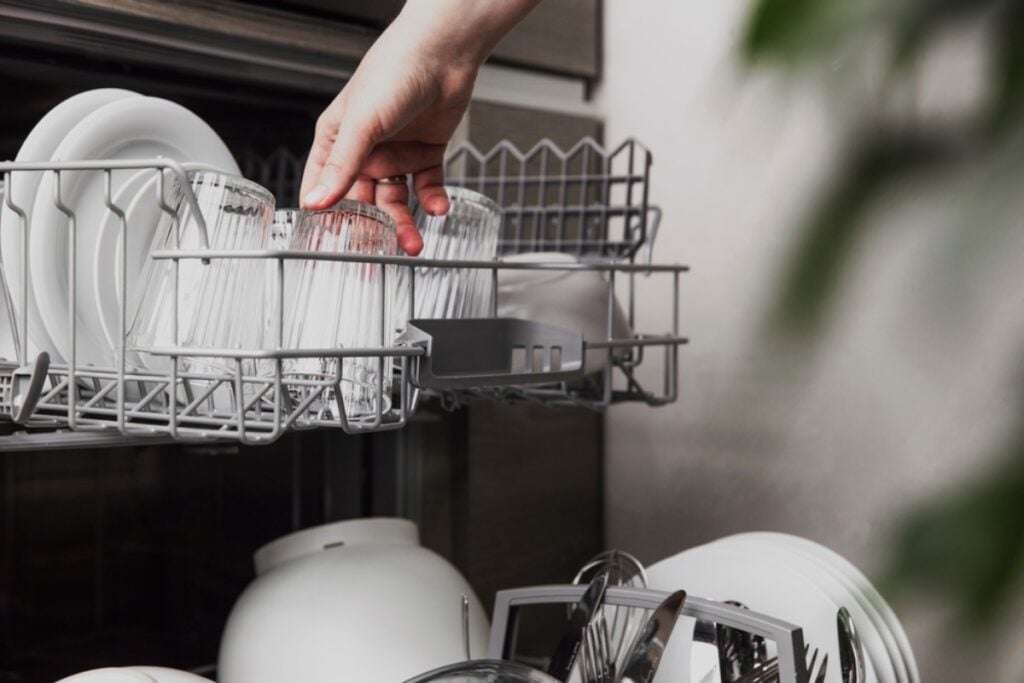
Emptying the dishwasher often gets pushed to the bottom of the to-do list. It can feel like a never-ending job.
Try emptying the dishwasher right after the cycle ends to prevent clutter from building up. Even spending just a minute to unload a few items helps keep your space tidy.
If you find this chore overwhelming, break the task into smaller chunks throughout the day. This can make it feel more manageable.
Taking out the trash
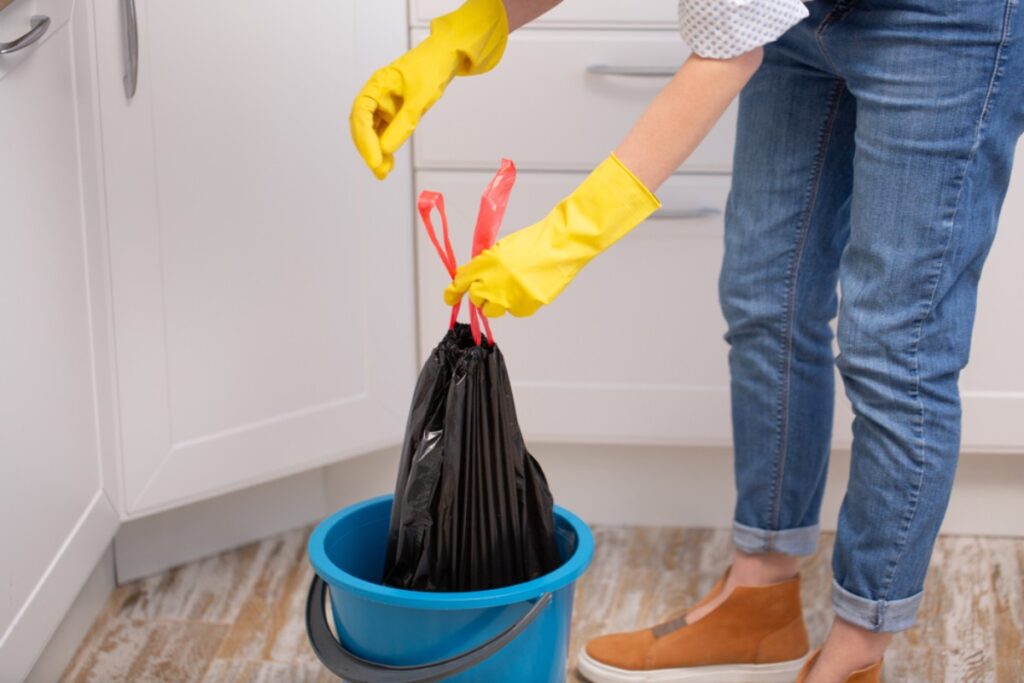
Taking out the trash is a chore most people delay until the bin starts to smell or overflow. It often feels unpleasant or messy.
Setting a regular schedule or reminder can help keep this chore from piling up. When everyone knows their responsibility, your home runs more smoothly.
Cleaning the oven

Cleaning the oven is a chore many people avoid until it becomes unavoidable. It can feel overwhelming because of the tough grease and baked-on food inside.
Start by removing racks and soaking them in warm, soapy water. This helps loosen grime while you focus on the oven interior.
Use commercial oven cleaners or natural solutions like baking soda and vinegar to break down buildup. Remember to protect your hands with gloves and ventilate the area well.
Organizing the junk drawer
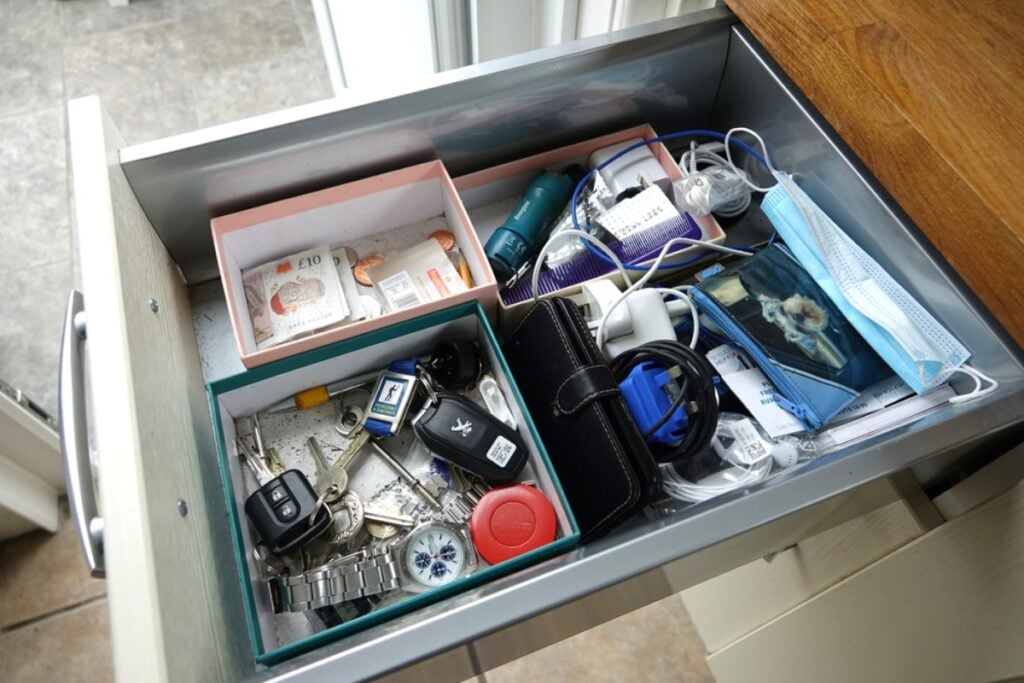
Most homes have a junk drawer filled with random items. It’s easy to ignore, but tackling it only takes about 15 minutes.
Remove everything so you can see what’s inside. Group similar items together to decide what to keep, throw away, or relocate.
Using small containers or drawer dividers makes it easier to keep things neat. Set a timer for 15 minutes to stay focused.
Dusting baseboards
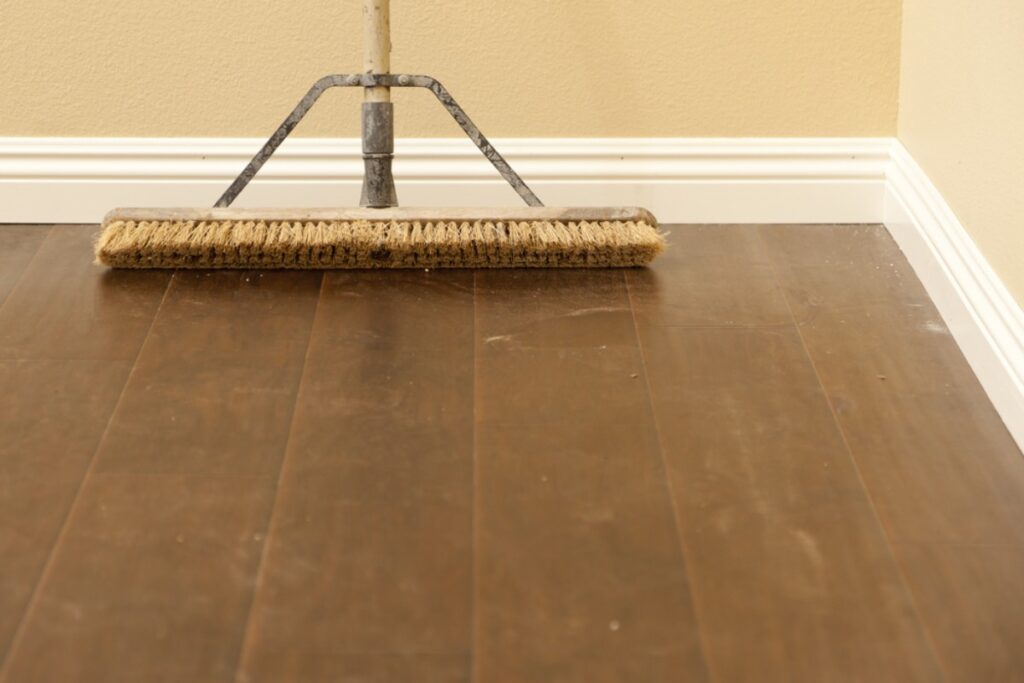
Dusting your baseboards is one chore that often gets overlooked. It can really refresh the look of your rooms by removing dust, hair, and dirt buildup.
Finish your main cleaning tasks first, then dust the baseboards. Use a microfiber cloth or an extendable duster to reach the dust easily.
For stubborn grime, a damp cloth with mild soap works well. Try to dust high-traffic areas weekly, and less-used rooms less often.
Mopping tile floors
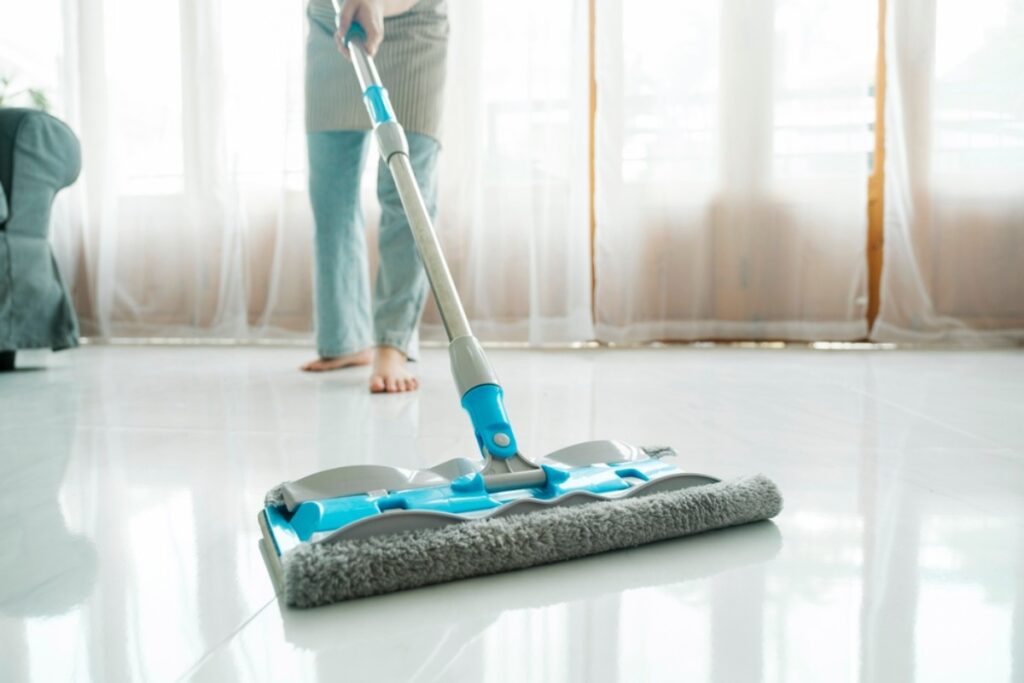
Mopping tile floors is a chore you might delay because it feels like a bigger task than it is. Too much water can damage grout and leave streaks.
Vacuum or sweep your tile floors before mopping to remove dust and debris. Use a damp mop rather than a soaked one for best results.
If your floor still looks dirty after mopping, try changing your cleaning solution or mop technique. Scrubbing lightly with a brush can help with grout lines.
Changing bed sheets
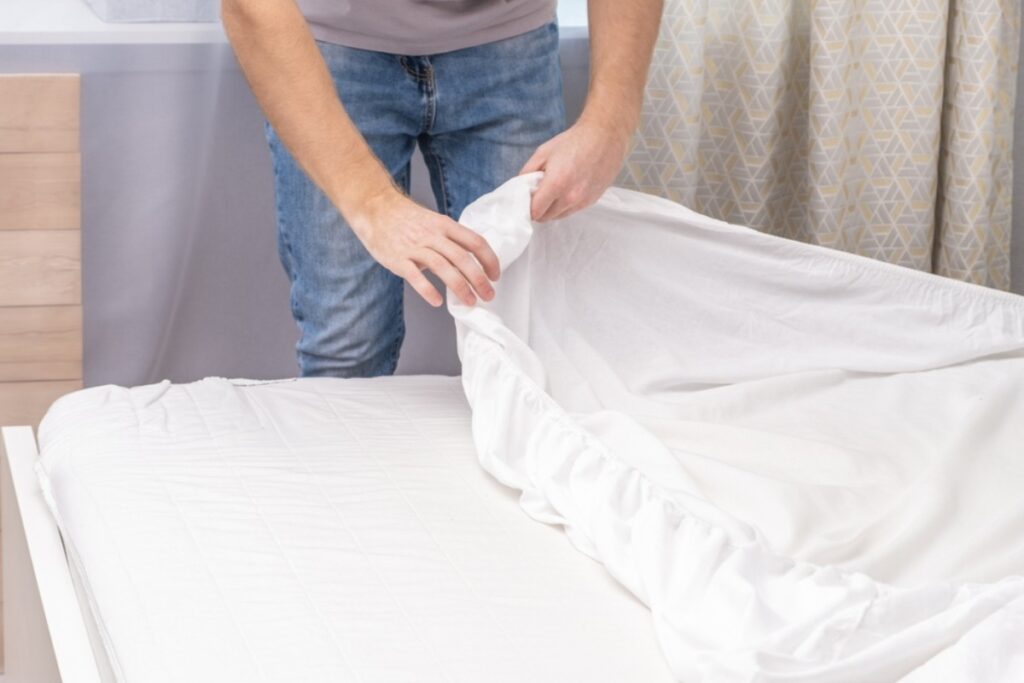
Changing your bed sheets can feel like a lot of work—you have to strip the bed, carry heavy laundry, and then remake everything. You might delay it, especially if you’re dealing with heavy blankets or fitted sheets.
Keeping your sheets clean is important for hygiene and comfort. Aim for changing sheets about once a week, or more often if you have pets or allergies.
Try breaking the chore into smaller steps. Stripping the bed one day and putting on clean sheets the next might make it feel less overwhelming.
If you have kids, encouraging them to help with this task can make it easier and teach responsibility.
Cleaning inside the microwave
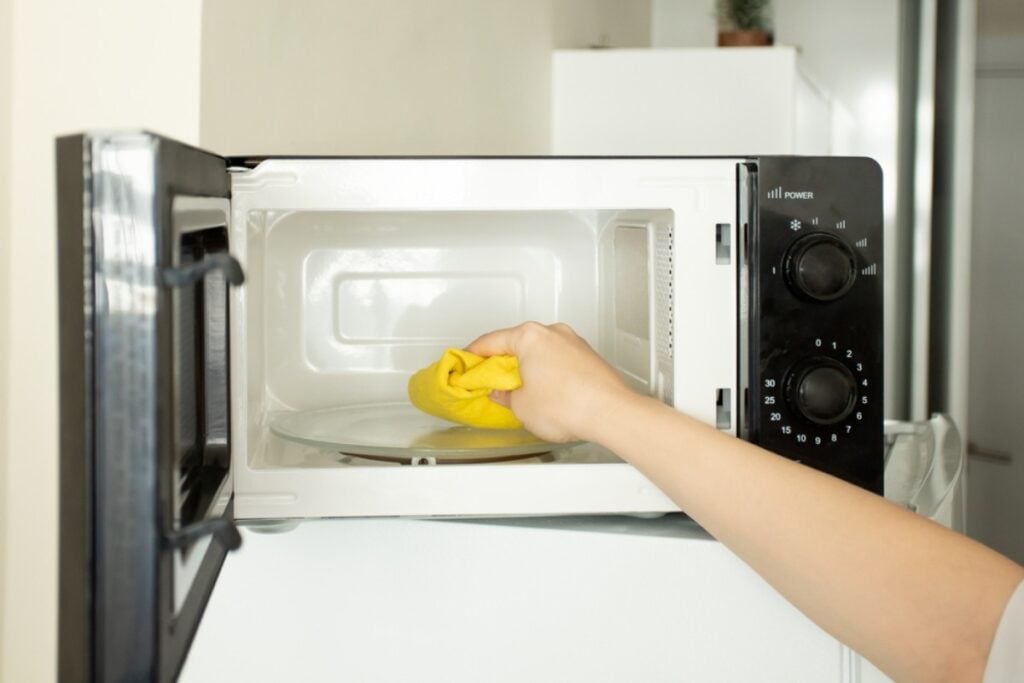
Cleaning your microwave is a chore that often gets pushed to the bottom of the list. But it only takes a few minutes to keep it fresh and working well.
Use a damp cloth to wipe the interior after each use. For tougher stains, heat a bowl of water with lemon slices inside for a couple of minutes to loosen grime.
Don’t forget to clean the outside too, especially the handle. Emptying the microwave’s turntable and washing it with warm, soapy water helps keep things hygienic.
A quick wipe every week prevents messes from becoming stubborn.
Washing windows

Washing windows often gets pushed to the bottom of your list. Breaking it into small steps makes it easier to tackle.
Start with a spray of glass cleaner or a mix of water and vinegar. Use a microfiber cloth or a squeegee for streak-free results.
Don’t forget the window sills and frames. Wiping these areas removes dust and dirt that can affect your window’s appearance.
If you’re short on time, focus on the main windows you see every day. Save the hard-to-reach ones for later.
Washing windows only takes a few minutes but makes a big difference in how bright and fresh your space feels.
Clearing out expired pantry items
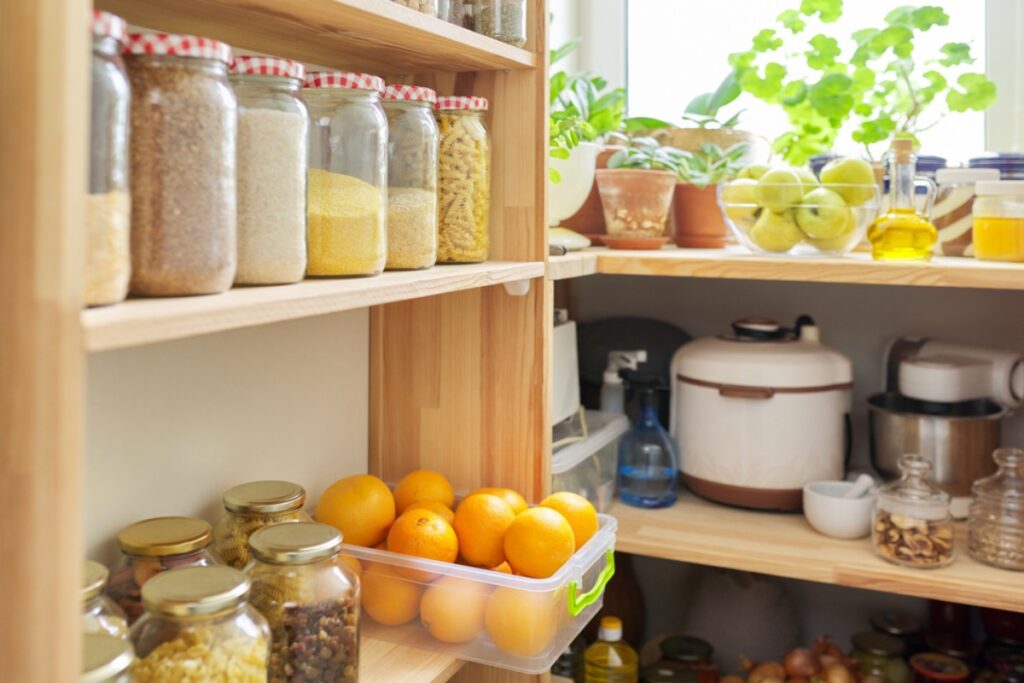
Pantries often contain more expired items than you might expect. Taking time to check expiration dates can help you toss what’s no longer safe to eat.
Start by grouping similar items like canned goods, baking supplies, and snacks. This makes it easier to spot what’s past its prime.
Keep an eye on smaller items like vanilla extract, spices, or food coloring—they often get forgotten but can expire too. Using airtight containers for frequently used ingredients helps them stay fresh longer.
Set a timer for 15 minutes and work through your pantry quickly. This manageable approach prevents the task from feeling overwhelming and keeps your kitchen organized regularly.
You can find helpful checklists and tips for effective pantry cleaning to guide you through the process.
Washing reusable grocery bags

Reusable grocery bags can collect dirt, bacteria, and food residue from spills. Regular cleaning helps keep your groceries safe and your bags smelling fresh.
Different materials require different care. Polypropylene bags can usually be wiped down with warm, soapy water or washed gently by hand.
Canvas and cotton bags often hold up well in the washing machine on a gentle cycle. Make sure your bags dry completely before you store or reuse them.
Damp bags can develop mold or mildew, which can be unhealthy and smelly. Simply wiping your bags with antibacterial wipes and letting them sit wet for a few minutes can help disinfect them between deeper cleanings.







